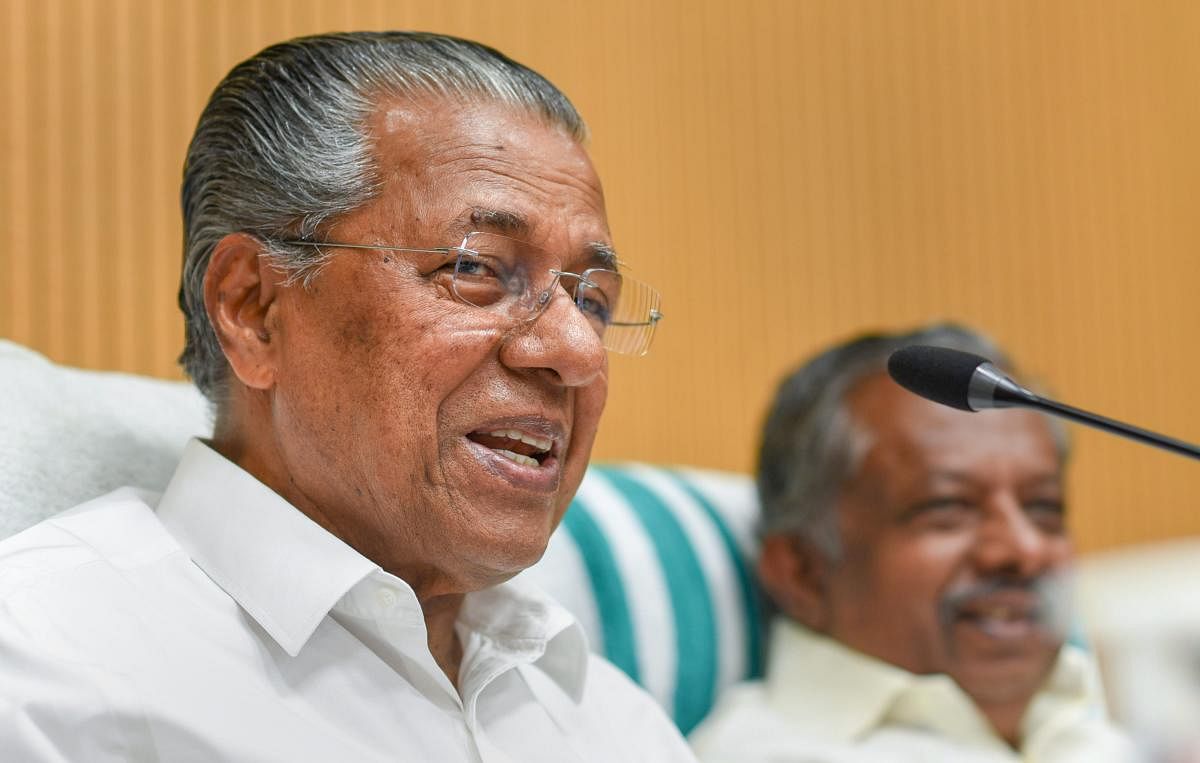
Kerala Chief Minister Pinarayi Vijayan Saturday said that NITI Aayog has not "played the much-expected role of a facilitator" in the last four years and perhaps was not a substitute for the erstwhile Planning Commission.
Vijayan, in his speech at the 5th Governing Council meeting of NITI Aayog, said that after doing away with the plans at the national level, states have lost the Gadgil formula, grants which they used to get a plan assistance earlier.
Besides, states now have also to bear a higher share 40 per cent instead of the earlier average 25 per cent in many centrally sponsored schemes, resulting in shrinking the State governments' fiscal space, he said. He said the transformation of the Planning Commission to NITI Aayog has adversely affected states like Kerala, which had lost a source of funding for its Five Year Plans.
"I hope that my colleague Chief Ministers would agree with me that NITI Aayog in the present form has not played the much-expected role of a facilitator in the last four years. There is a growing realisation that it is perhaps not a substitute for the erstwhile Planning Commission," he said.
Vijayan said Kerala was continuing with the Five Year Plans and implementing much development programmes through its Thirteenth Five Year Plan. He said the centre has recently been spending on subjects in the State List, resulting in centralisation in the design of welfare schemes, which by economic reasoning, could be effectively done by governments at the State and local level. "For the strong nation, a strong Centre, strong states and vibrant local governments are essential pre-requisites."
He said the foremost aim to fulfil people's aspirations was decentralisation of power to them as mandated in constitutional amendments. Vijayan said "incursions" into areas of legislative competence of state governments enshrined in the Constitution would weaken the federal system and make cooperative federalism lose its content, as well as its spirit.
Vijayan opposed the move for Agricultural Produce Marketing Committee(APMC) Actand said the "exploitative conditions"will worsen in all probability. He said states have their own legislation on reforming agricultural producemarketing as it's an item in the State List of theSeventh Schedule of the Constitution. He said Kerala has noAPMC Act and the focus of the draft model act was on bringing incorporate farming and putting farmers in direct contact with corporate trading entities, with the expectation that their income standards would improve. "In a society with highly unequal bargainingpowers and monopoly power, these corporateentities would have the exploitative conditionswill worsen in all probability.
Our State has demonstrated that through peoples' participation, the intervention of the cooperative movement and the government, procurement of agricultural produce at fair prices is possible. We have taken effectivesteps in paddy procurement by ensuringremunerative prices for farmers," Vijayan said. On Left Wing Extremism (LWE), he said the security apparatus needs to be vigilant and curb any kind of extremism and terrorism threatening the peace and security of common people.
"Regarding left-wing extremism, it is our stated position that attention and focus have to be on the alleviation of conditions of deprivation and marginalisation in society. At the same time, the security apparatus needs to be vigilant and curb any kind of extremism and terrorism threatening the peace and security of common people. Government of Kerala is addressing these twinconcerns with equal importance," Vijayan said.
He said the Kerala government felt states should be able to perform theirconstitutionally assigned developmental roleeffectively. "Kerala has the recent experience of not being ableto avail of assistance after the devastating floodsof 2018 because of the rigid fiscal constraintsbeing followed without the needed flexibility. The gravity of this can be realised only when considered against the fact that the State suffered damage amounting to Rs 31,000 crore, which is approximately 4 per cent of its Gross state domestic Product," He said.